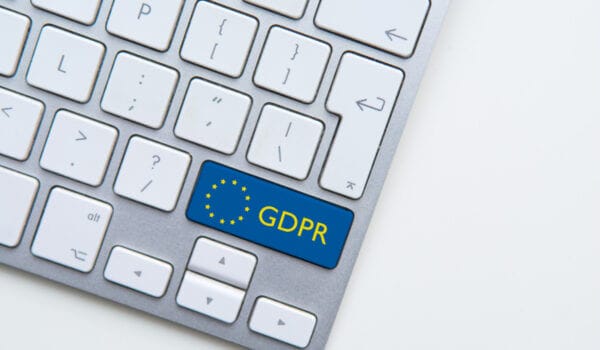
GDPR Data Retention: A Guide To Compliance
What is GDPR?
Implemented by the EU in 2018, General Data Protection Regulation (GDPR) was introduced to give individuals more control over the personal data collected, stored and shared by businesses and organisations.
A key feature of GDPR is its emphasis on user consent – businesses must request explicit consent from their customers to collect, store and use their data, marking a shift from an ‘opt-out’ to an ‘opt-in’ process. A further requirement of the regulation was that an individual could contact a business and request a copy of their data held by that business, or ask that all their data be deleted from a company’s records.
GDPR also aimed to make organisations more accountable. To comply with GDPR requirements, businesses must be transparent about the types of data they record, how they do so, how long they hold that data for, and what they use it for. Having to comply with GDPR has forced businesses to evaluate their procedures for collecting, storing and protecting data.
When the UK formally left the EU on January 31st 2020, the Government replaced the existing GDPR legislation with the UK-GDPR law, which is effectively identical to the EU version.
What is data retention?
Data retention refers to the length of time your business stores client or customer records. At the end of the data retention period, you must delete or destroy the data. There is no one set GDPR data retention period – timescales vary between different sectors and industries, but for UK and EU businesses, data retention policies are a key part of GDPR compliance. Organisations must have a data retention policy in place that outlines the types of data they store, how they store it, and how long they keep it for.
GDPR data retention and cloud backup
Cloud backup providers can help businesses stay GDPR-compliant as they provide essential support for data retention policies. Cloud backup services provide an off-site, non-physical backup, protecting business data from server failures and outages. Secure, encrypted cloud backup also safeguards data against cybersecurity threats like ransomware attacks and malicious actors. You can recover and restore lost data quickly, and can access your backup from anywhere that has a safe internet connection.
Your GDPR compliance checklist
Given that GDPR came into force in 2018, it is likely your business is largely compliant. But regular checks are important – and if the amount of data you process increases year-on-year, it’s vital that your data protection procedures can keep up with business growth. Below, we’ve put together a checklist of actions to ensure you’re GDPR-compliant:
- Only collect the data you need to operate successfully. GDPR states the importance of ‘data minimisation’: the data you collect should be “for specified, explicit and legitimate purposes”. But as well as GDPR compliance, collecting only essential data has a second benefit: the more data you store – especially personally identifiable information (PII) – the more attractive it is to hackers and other malicious actors, so it pays to minimise the amount of data you gather
- Be transparent about the data you collect and why. When you collect data from clients, customers or suppliers, they need to actively consent, so make sure your communications are clear
- Ensure your methods for protecting data are fit for purpose. Evaluate your systems and processes regularly, and implement any additional measures where necessary. This includes encryption, password management, minimum access levels, and cybersecurity infrastructure
- Ensure your backup solutions are secure. How you back up your business data is as important as how you process it in the first place, so you need to ensure your backup procedures are effective. While GDPR does not mention Disaster Recovery (DR) explicitly, a major underlying principle of the regulation is security – so having a comprehensive strategy for recovering data in the event of an incident is an implicit part of GDPR compliance. Cloud backup can help you stay GDPR-compliant
- You may need to appoint a Data Protection Officer (DPO). Organisations that process large amounts of personal or sensitive data must have a DPO in post to oversee GDPR compliance
- Respond to access requests promptly. If an individual contacts your organisation to ask what personal data you have on them, or asks you to delete it, you must respond to them and action their request within a reasonable timeframe
- Maintain up-to-date records. GDPR requires that you document how you process individuals’ personal data. Regulatory bodies have the right to see evidence of this documentation, so it’s important you keep it updated
- Report data breaches. Under GDPR, if your business suffers a data breach, you are required to report it to the relevant authorities within 72 hours of the incident being discovered
- Provide staff training. All employees of your business must understand their obligations when it comes to protecting data for GDPR
- You may need to conduct a Data Protection Impact Assessment (DPIA). If undertaking a new project or plan that will use or add to the personal data your business already holds, you may need to conduct an impact assessment to identify and hopefully minimise the data protection risks involved
The future of GDPR
In the EU, a new Directive established to improve cybersecurity, NIS2, came into force on 17th January 2023. Until EU Member States put NIS2 into their own laws, it won’t be actively enforced, but if your business operates within the EU, you will need to prepare. The emphasis of NIS2 is on information security and ensuring Business Continuity (BC) in the event of an incident or cyberattack – and secure data retention is an essential part of that.
Another piece of potential legislation to be aware of is the UK’s Data Protection and Digital Information Bill. It’s currently still at the reading stage so it may not become law for a long time, but essentially, it will amend how GDPR works in the UK – so it’s something to keep an eye on.
Stay GDPR-compliant with BackupVault
Cloud backup from BackupVault can help you with GDPR compliance. We protect your business data with enterprise-grade encryption and store it on fully secure UK servers. We operate a ‘zero knowledge’ policy and your data can be restored in as little as three clicks.
Get in touch with us today to find out how we can safeguard your critical data and ensure you’re compliant with data protection regulation.
BackupVault: what have you got to lose?


